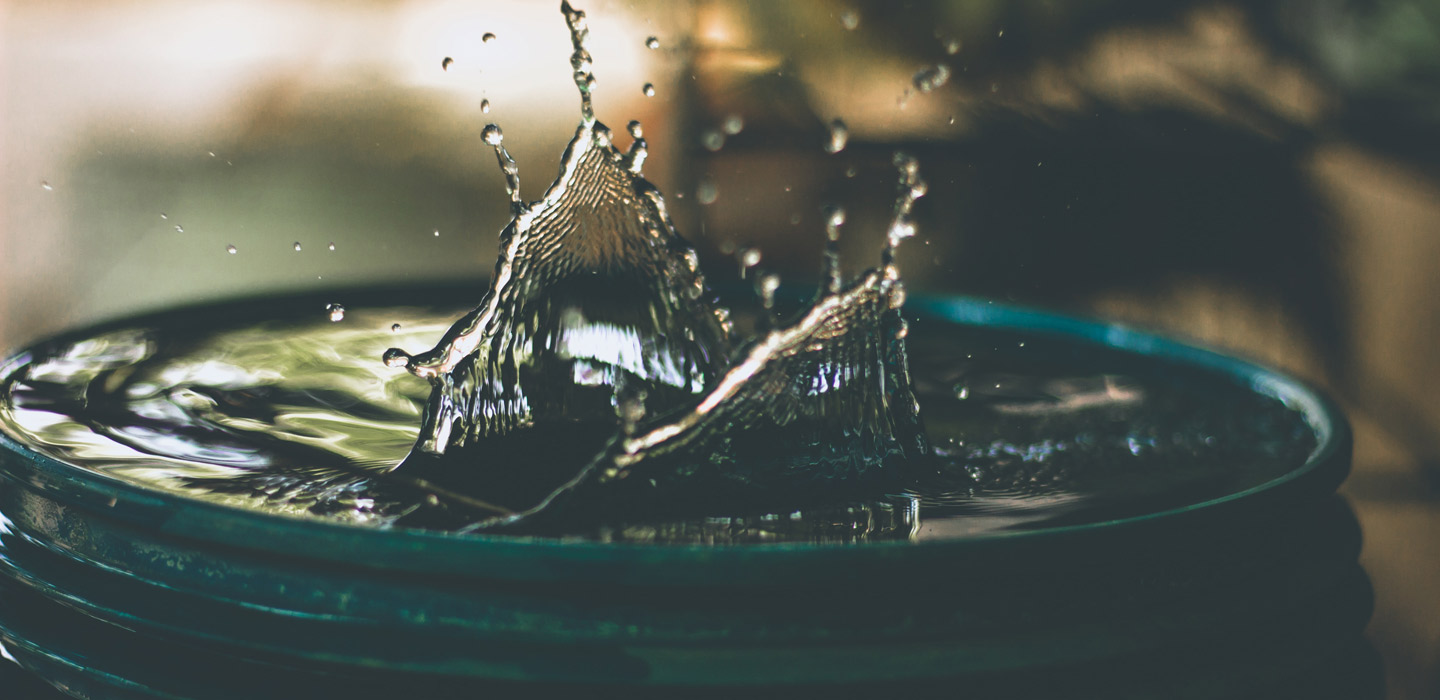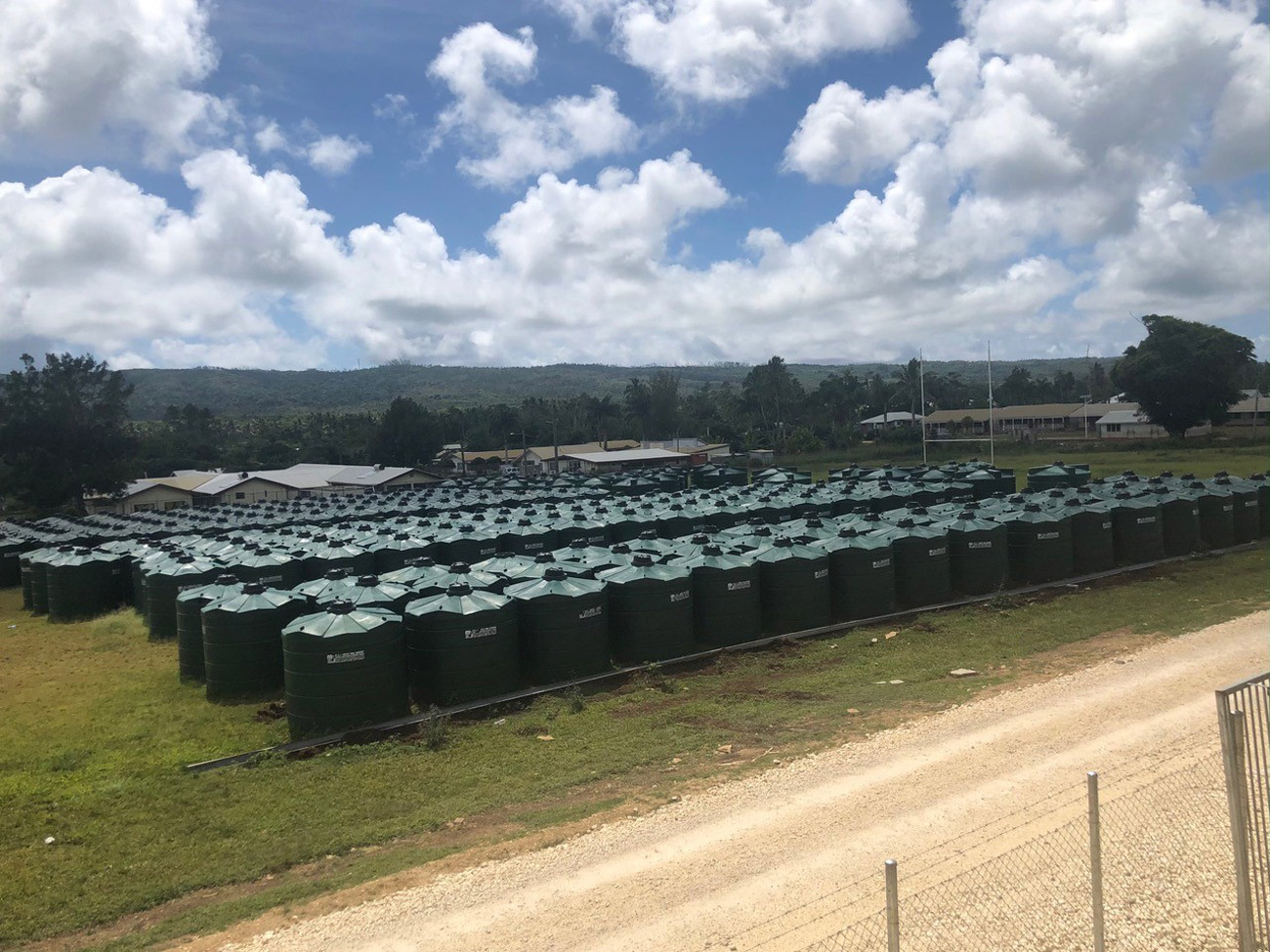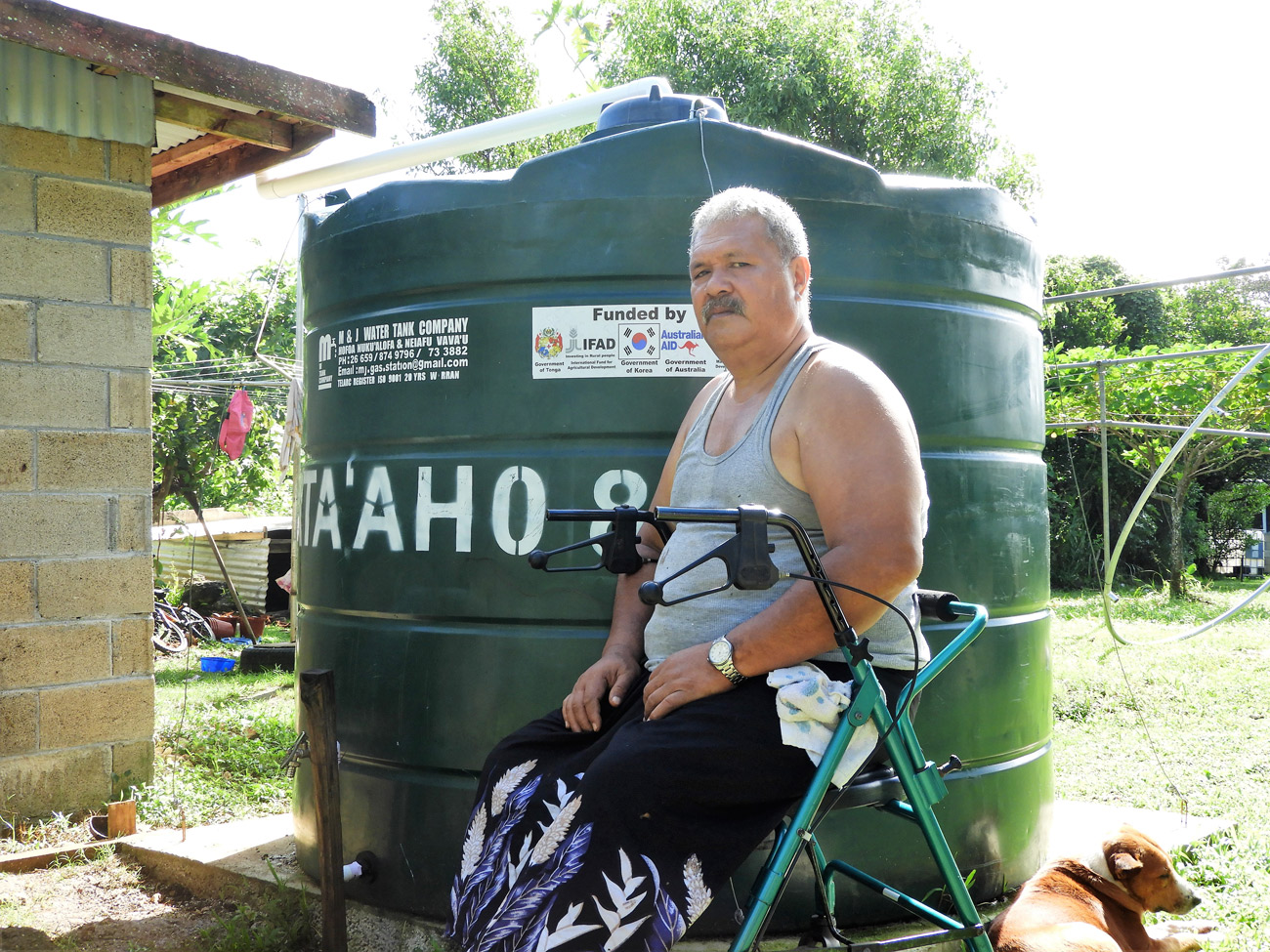Community-driven change brings water security in Tonga
IFAD Asset Request Portlet
Asset Publisher
Community-driven change brings water security in Tonga
Estimated reading time: 4 minutes
‘Eua Island is home to the Kingdom of Tonga’s only remaining protected national forests, as well as its only natural sources of water from spring-fed streams. But this lush ecosystem is also highly vulnerable to a range of natural disasters, which frequently cause significant water supply challenges for ‘Eua’s population. Long periods of drought are often punctuated by increasingly intense tropical cyclones. Heavy rains wash sediment and mud into the streams, contaminating them, while earthquakes shift or displace existing aquifers. Because the island lacks water treatment plants and sufficient infrastructure for pumping clean water to many villages, these events repeatedly threaten the quantity of drinking water, impact basic sanitation, and reduce the amount of water available for agricultural irrigation and the homestead gardens run by many women.
 |
| Water tanks delivered to ‘Eua Island await installation. © Salome Tukuafu |
And despite its proximity to Tonga’s capital Nuku’alofa, ‘Eua is not always the first to get attention or relief. “In times of natural disaster [relief] and [when defining] development priorities, the focus is usually on the main island and the capital,” says Sunia Havea, the former Tongan government representative to ‘Eua.
That’s why Sunia, among many others, is glad to see IFAD’s support for communities across Tonga via the TRIP II project, a broad-based approach to natural resource management that is enabling Tonga’s communities to strengthen their climate resilience and improve their livelihoods.
The heart of the TRIP II project is its community-driven approach. With this method, residents of the participating communities themselves are centrally involved in the planning, prioritization and design of Community Development Plans (CDPs), as well as the subprojects these plans generate. Through this community-led process, residents of ‘Eua’s 15 communities identified access to clean, safe, and reliable drinking water as one of their main priorities and implemented a water resilience subproject. With TRIP II’s help, they installed rain catchment tanks for 885 households across the island, providing a sustainable, alternative source of clean water. The project will also help communities’ capacity to maintain the tanks going forward.
 |
| Fuifui Luau shows off his newly installed water tank. |
Fuifui Luau is just one of the island’s residents who benefitted from the project. His primary source of water had been an old cement rainwater catchment system that had fallen into disrepair and could no longer be used. He’d been relying on his neighbor’s water tank, which sometimes caused conflict when water was scarce.
“We are elated to have a new tank installed at our home for our daily use,” he says. “I am able to get water from the tank on my own without needing to look elsewhere.”
Community-driven development: The key to sustainable change
Community-driven approaches are fundamental to building trust and ensuring sustained commitment. The highly participatory process, along with the fact that the project and the community share the costs of the sub-projects, promotes a strong sense of local ownership. In this case, the ‘Eua islanders mobilized a full 50 per cent of the funding – an extraordinary effort.
The support of local partners is also crucial for implementation. In Tonga, IFAD is working closely with the MORDI Tonga Trust (TT), a local NGO, to roll out the project. MORDI TT has been instrumental in facilitating collective buy-in, especially among district officers and town officers, whose support for the project is fundamental.
MORDI TT has also helped establish and train community water subcommittees tasked with formulating and implementing the water resilience subproject. This has included raising additional project funds, including from the islanders themselves. Despite the many hardships these communities have faced throughout the COVID-19 pandemic, they made matching contributions of in-kind material and labour, as well as cash contributions.
Previously, the participants had leveraged cash contributions through remittances and from selling their agricultural products, handicrafts and fish in the markets. With the global economic downturn, including travel and trade restrictions, it was difficult for households to raise the matching funds needed to complete the project. But community always take precedence in Tonga and, proudly, the ‘Eua communities worked together to find other avenues of raising money to ensure the project’s success.
As always, projects like these must be sensitive to their local contexts. Community-led approaches require more time, staff commitment and financial resources to implement, especially when working with communities in very remote locations and on outer islands. Additionally, translating technical concepts into non-technical explanations, working in alignment with cultural practices, and identifying and building the capacity of individual project champions have been key to driving the work forward.
The water resilience subprojects have not been without their challenges. For example, local elections in 2019 resulted in 40 per cent of the town officers being replaced. This required additional outreach and training to bring new officers up to speed.
CDPs as a development-planning platform
TRIP II is demonstrating that these approaches are key to improving the adoption of new interventions and to building a long-term vision for institutional sustainability. The CDPs developed by communities will be publicly accessible on Tonga’s local government website and can be used to inform the national development agenda. They can also serve as a platform to engage other development partners to channel resources and investments in alignment with communities’ priorities. ‘Eua islanders, for example, have used theirs to leverage co-funding for their water project from the governments of Australia and the Republic of Korea.
Sunia Havea, the former government representative, has expressed great satisfaction with the project, noting that in 2021, “all our ‘Eua communities will be water secure. This means all our communities will have much improved water quality.” The new water tank infrastructure is an important achievement – and one that is likely to endure, because an invested, committed community built it.
Learn more about IFAD’s work in Tonga.
Publication date: 23 August 2021